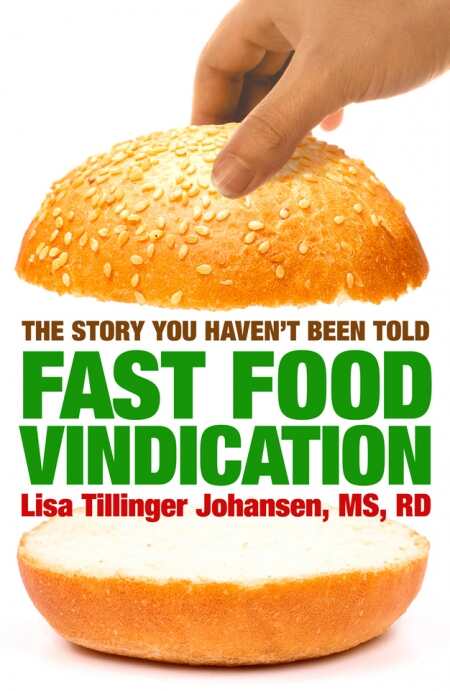Fast Food Vindication
In recent years, fast food has been blamed for the unhealthy diets of Americans. Lisa Tillinger Johansen adopts a different perspective in her provocative book: She believes that the 50 percent of Americans who eat fast food are not likely to stop; instead, she argues, they must make healthier choices when patronizing fast-food establishments. The real challenge is to understand the concept of “healthy eating for life.” If the consumer focuses on making healthy choices, Johansen argues, “it isn’t so difficult to incorporate nutritious fast-food items into a healthy lifestyle.”
Johansen, a registered dietitian who at one time held a nonfood-related position at McDonald’s, does not regard fast-food establishments as the enemy of healthy eating. While she admits that the majority of fast-food menu choices are laden with fat and sodium, Johansen believes that consumer demand has increased the number of healthier items available. “It’s up to the consumer, you and me, to keep these items on the menu by buying them,” writes Johansen. The author points out that traditional restaurants, which seem to be less prone to criticism, serve high-fat, high-sodium meals, often in oversized portions. She includes a comparison chart demonstrating that, “often the listed fast food choices have less calories, fat and sodium than the sit-down counterparts.”
At times, Johansen’s defense of the fast-food industry may seem a bit too enthusiastic. She writes only in positive terms about “fast-food pioneers” such as Carl Karcher, founder of a family of restaurants that now includes Carl’s Jr. and Hardee’s, and Harlan Sanders, founder of Kentucky Fried Chicken, even though those chains have been notorious for their unhealthy menus. She touts the fact that the fast-food industry is “a champion of diversity” in its hiring practices, despite its traditionally low-paying jobs.
Still, Johansen makes a valid point in her argument that fast-food establishments have taken the brunt of criticism for Americans’ generally unhealthy eating habits. She offers evidence that other restaurants, the packaged and processed foods consumers buy, and cookbooks featuring recipes with unhealthy ingredients and larger portion sizes all play a contributing role.
Johansen’s breezy style makes Fast Food Vindication easy to read. The facts she shares, backed by a lengthy section of references, are compelling. To encourage Americans to eat healthier foods, the author sees the need for sweeping reform, including the sharing of nutritional information by all restaurants and better nutrition education in schools. If such changes begin to take place, that will be vindication for Lisa Tillinger Johansen.
Reviewed by
Barry Silverstein
Disclosure: This article is not an endorsement, but a review. The publisher of this book provided free copies of the book and paid a small fee to have their book reviewed by a professional reviewer. Foreword Reviews and Clarion Reviews make no guarantee that the publisher will receive a positive review. Foreword Magazine, Inc. is disclosing this in accordance with the Federal Trade Commission’s 16 CFR, Part 255.

